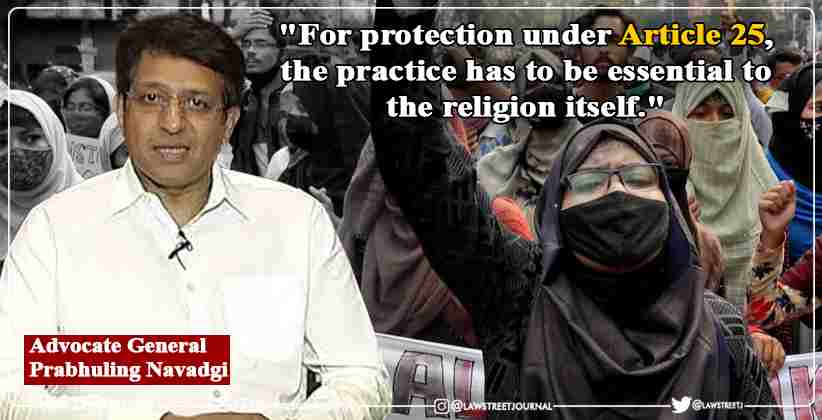The Hijab hearing at Karnataka HC got concluded for Monday (21st February, 2022) with Advocate General Prabhuling Navadgi taking strong stances regarding the essentiality of adorning Hijab as a religious practice. The AG argued that the students had demanded to be allowed to wear the Hijab not as a uniform but as a religious practice.
The AG stated that Hijab shall fall under the right to be protected under Article 25 of the Constitution only if it is essentially religious.
AG Prabhuling Navadgi said that if Hijab is essentially religious, it will then be binding on all women practicing Islam. Not wearing it then would be a contravention to an essential practice and thus affect ones religion, he said.
The AG cited the landmark Sabrimala judgement that If a practice is optional, it has been held that it cannot be said to be essential to a religion.
The AG has questioned the seriousness of the petitioners here who have demanded a sanctioned dress-code to be allowed for the practitioners of Islamic faith. Such is the flexibility of the petitioners he said.
The AG referred to the landmark Shiroor Mutt case, where it was held by the Supreme Court that what is essentially religious is protected. Upon being asked about the The Venkata Swamy case, wherein only the Goud Saraswat Brahmins had the right to worship in certain temples and the access or even the right to enter those temples was denied to anybody else, the AG argued that those priests traced their lineage to the temples and how those idols were brought there by the ancestors. The SC had upheld that.
Moreover in Sabrimala matter, the AG said that the essentiality of religion was even asked to be proved.
"In the context of hijab, there is an indication that food and dress cannot be considered essential religious practices," AG Navadgi argued.
The AG, on behalf of the state, argued, "For protection under Article 25, the practice has to be essential to the religion itself."









